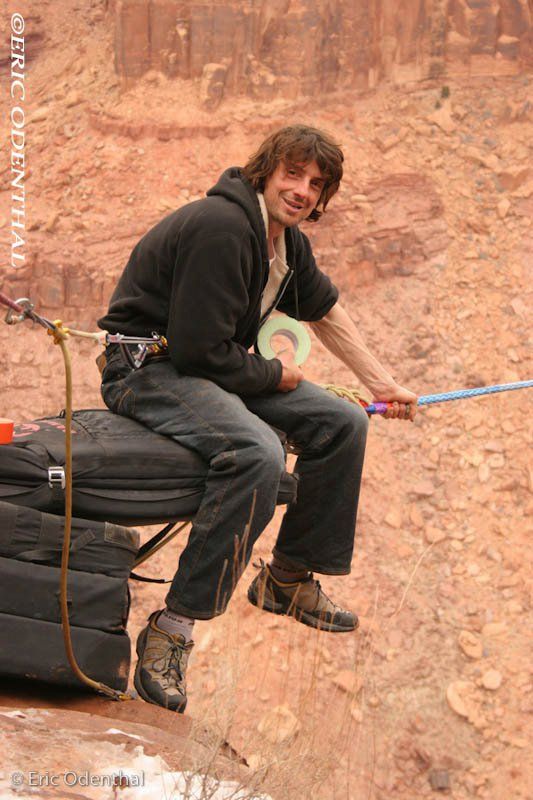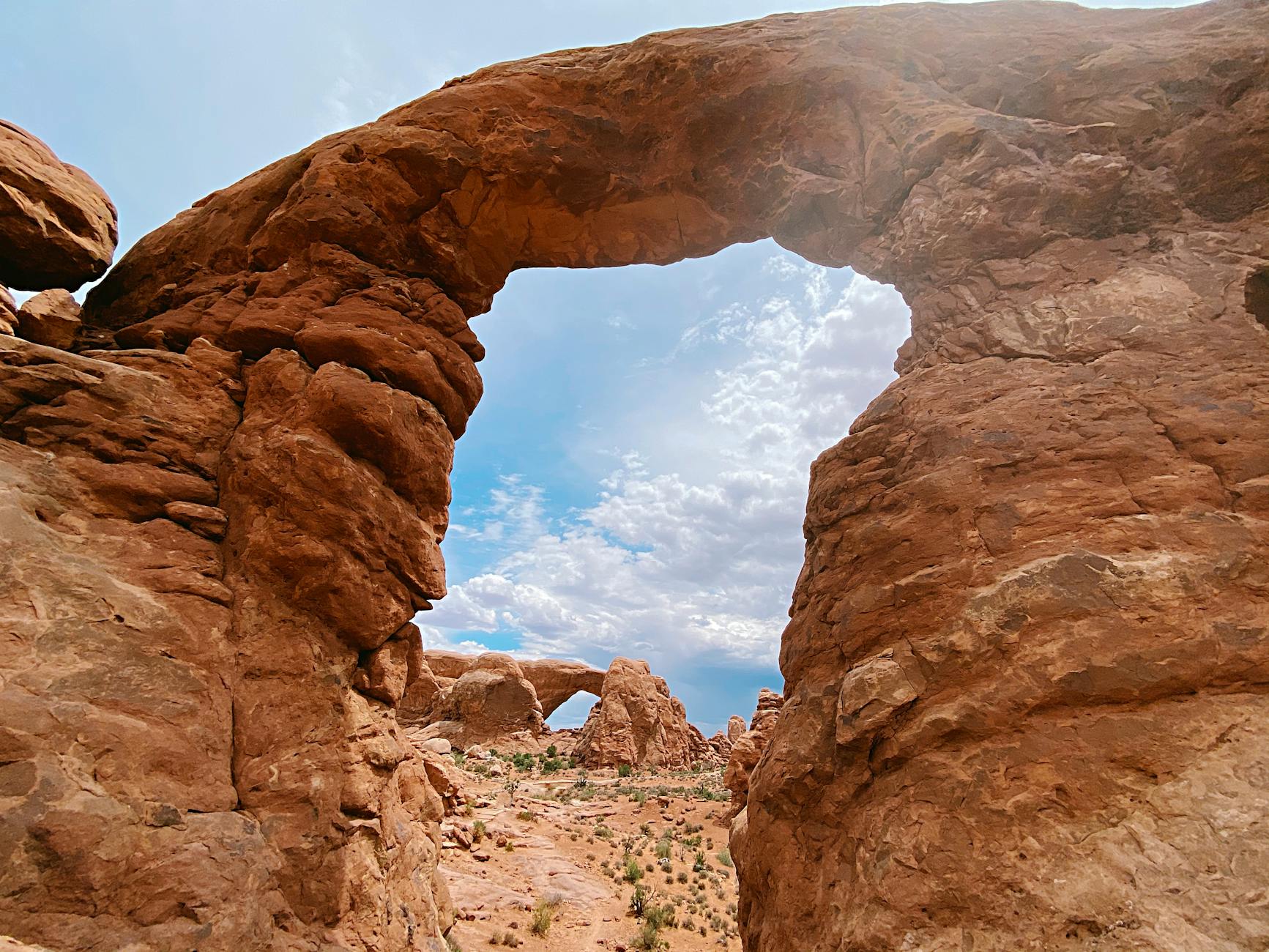Preferring to call himself an artist, world-renowned rock climber, extreme sports athlete and former Moab resident Dean Potter pushed the limits of mind and body to the edge.
Engaging in what he called his three “aerial arts” of “climbing, flying, and highlining,” Potter viewed his endeavors as a spiritual pursuit, while at the same time acknowledging his addiction to adrenaline and the thrill of cheating death.
“My brain is flawed,” he wrote in an article for Alpinist Magazine called Embracing Insanity. “I have compulsions I can’t control. Although I want to escape the limits of the human body, I want to live.”
Potter, 43, and his partner Graham Hunt, 29, died during a BASE jump from Taft Point in Yosemite Valley, California, on Saturday, May 16.
BASE jumping involves parachuting from fixed objects including bridges, antennas and natural landforms, and is considered by many to be the world’s most dangerous sport.
Wearing specially designed wingsuits to enhance their air time, the pair jumped off the point and attempted to glide through a narrow notch on the crest of an adjacent ridge. But something went wrong and they never made it to the valley floor 3,500 feet below. Their bodies were located on a rock outcropping beneath the point. Neither had deployed their parachutes.
Larry Harpe, a Moab resident, climbing guide and friend of Potter’s, told the Moab Sun News that the jump was extreme.
“Taft Point in Yosemite is a hairball jump,” he said.
Harpe said that doing the jump two at a time made it all the more risky, but that Potter and Hunt – a part-time Moab resident – were two of the best in the sport.
“These guys were pushing the limits and doing things no one has ever done before,” he said.
Harpe said that Potter was always looking for the next challenge, but that he was always very calculated in his approach. Even so, it hadn’t come as a surprise that he and Hunt had been killed.
“You question why these guys do these things, but you gotta do what makes you happy,” Harpe said. “Dying early is tragic, but dying of old age with a bunch of regrets is tragic, too.”
A leading figure of his generation, Potter astounded peers by climbing free-solo, or without a rope, difficult routes on the largest cliff faces in the Yosemite Valley. He set speed records on the climbs, accomplishing in hours what many seasoned climbers took days to do.
He also free-climbed routes in the Moab area that had previously been accomplished only through the use of artificial aid.
“He was one of the best climbers in the world,” local climber and Moab resident Eve Tallman said. “You have to be really solid to free-solo the stuff he was doing.”
In addition to free solo climbing, Potter also took to “highlining,” or walking on a length of nylon webbing stretched between two rock formations, several hundred, or even thousands of feet above the ground.
Unlike most highliners, Potter eschewed the use of a tether and safety harness, although, after hundreds of free-solo walks, he incorporated the use of a parachute in case of a fall.
“I love the idea that I can turn the worst possible thing into the best possible thing, dying into flying,” Potter wrote.
Potter moved to the Moab area in 1996 with his now ex-wife Steph Davis, who is also a renowned climber and BASE jumper.
“The desert stilled me,” Potter wrote. “Here I became aware of the beauty of the lines and of the spaces they created.”
In the cliffs and canyons near Moab, Potter found endless opportunity to ply his craft, but his time here was not without controversy. In 2006, he did a much publicized, free-solo climb of Delicate Arch, an iconic land form in Arches National Park, and de-facto symbol of the state of Utah.
Though not technically illegal at the time, the National Park Service’s reaction to the climb was swift, resulting in tighter regulations and an outright ban on climbing named arches.
The feat drew condemnation from many sides, including other climbers who, according to Tallman, “were upset that he put his personal pursuits over the greater good of the climbing community.”
Former Moab resident and climbing guide service owner Dave Medara said that the “whole reaction to the Delicate Arch thing was completely overblown,” and that the National Park Service overreacted.
“It was a pointless punishment of a large user group for the insignificant action of one individual,” Medara said.
Medara said that he remembers Potter from the early days of climbing in Moab.
“Dean was an incredible natural talent,” Medara said. “He became kind of controversial, but back then we were just doing what we loved. I’d like to think he died doing what he was doing for the right reasons, and in the end, I think he was.”
Tallman said that, “He was controversial because he was unapologetic about what he wanted to do.”
Living without rules was a creed Potter adhered to as he searched for the ultimate expression of freedom. He found it through wingsuit BASE jumping, though the fact that is illegal in national parks dogged him until the end.
“It’s still not right that I’m a criminal in my home town and that I can’t fully spread my wings in the Land of the Free,” he wrote. “We who walk the narrow line have stood for free thinkers for thousands of years. Let us continue balancing within the world as we try to understand the place between.”
I love the idea that I can turn the worst possible thing into the best possible thing, dying into flying.
Legendary rock climber Dean Potter remembered for upping the ante in extreme sports





